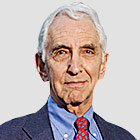Blood was running down my hand, covering the back of my hand. I was wearing a heavy watch and it had taken the force of the blow. The baton had smashed the crystal and driven pieces of glass into my wrist. Blood was dripping off my fingers. Someone gave me a handkerchief to wrap around my wrist and told me to raise my arm. The handkerchief got soaked quickly and blood was running down my arm while I looked for a first-aid station that was supposed to be at the back of the crowd, in a corner of the square. I finally found it and someone picked the glass out of my arm and put a thick bandage around it.
I went back to the protest. My shoulder was aching. The police were standing where they had stopped, and the blockade had reformed, people were sitting ten yards back from where they had been before. There seemed to be more people sitting, not fewer. Many of the supporters had joined in. But it was quiet. No one was speaking loudly, no laughing. People were waiting for the police to move forward again. They weren't expecting any longer to get arrested.
Only three or four people had been picked out of the line to be arrested before. The police had made a decision (it turned out) to arrest only the "leaders," not to give us the publicity of arrests and trials. Howard hadn't been an organizer of this action, he was just participating like the rest of us, but from the way they treated him when they pulled him out of the line, his comments directly to the police in the rally the day before must have rubbed someone the wrong way.
I found Roz Zinn, Howard's wife, sitting in the line on the side at right angles to where Howard and I had been before. I sat down between her and their housemate, a woman her age. They had been in support before until they had seen what happened to Howard.
Looking at the police in formation, with their uniforms and clubs, guns on their hips, I felt naked. I knew that it was an illusion in combat to think you were protected because you were carrying a weapon, but it was an illusion that worked. For the first time, I was very conscious of being unarmed. At last, in my own country, I understood what a Vietnamese villager must have felt at what the Marines called a "county fair," when the Marines rounded up everyone they could find in a hamlet--all women and children and old people, never draft- or VC-age young men--to be questioned one at a time in a tent, meanwhile passing out candy to the kids and giving vaccinations. Winning hearts and minds, trying to recruit informers. No one among the villagers knowing what the soldiers, in their combat gear, would do next, or which of them might be detained.
We sat and talked and waited for the police to come again. They lowered their helmets and formed up. The two women I was with were both older than I was. I moved my body in front of them, to take the first blows. I felt a hand on my elbow. "Excuse me, I was sitting there," the woman who shared the Zinn's house said to me, with a cold look. She hadn't come there that day and sat down, she told me later, to be protected by me. I apologized and scrambled back, behind them.
No one moved. The police didn't move, either. They stood in formation facing us, plastic masks over their faces, for quite a while. But they didn't come forward again. They had kept open a passage in front for the employees inside to leave after five, and eventually the police left, and we left..
* * *
There was a happier story to tell, just over one month later. On Saturday night, June 12, 1971, we had a date with Howard and Roz to see Butch Cassidy and the Sundance Kid in Harvard Square. But that morning I learned from someone at the New York Times that--without having alerted me--the Times was about to start publishing the top secret documents I had given them that evening. That meant I might get a visit from the FBI any moment; and for once, I had copies of the Papers in my apartment, because I planned to send them to Senator Mike Gravel for his filibuster against the draft.
(Note: You can view every article as one long page if you sign up as an Advocate Member, or higher).





